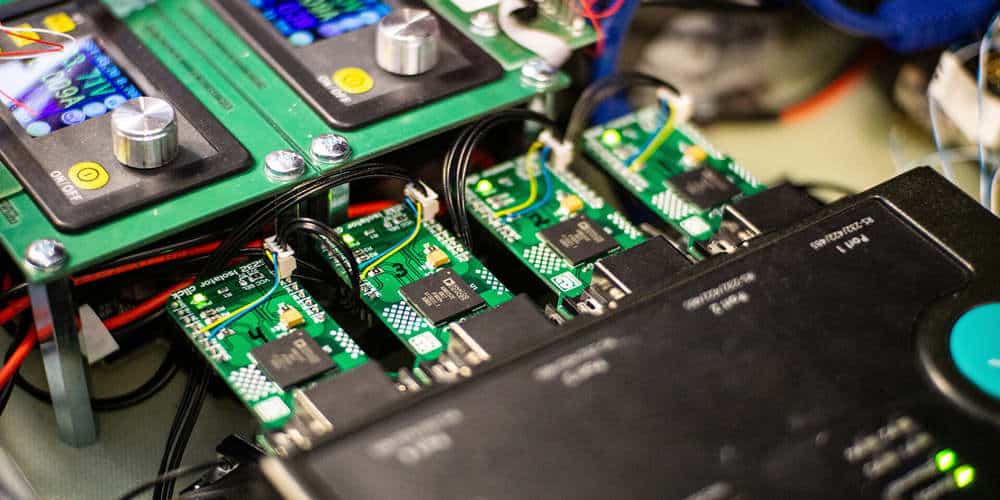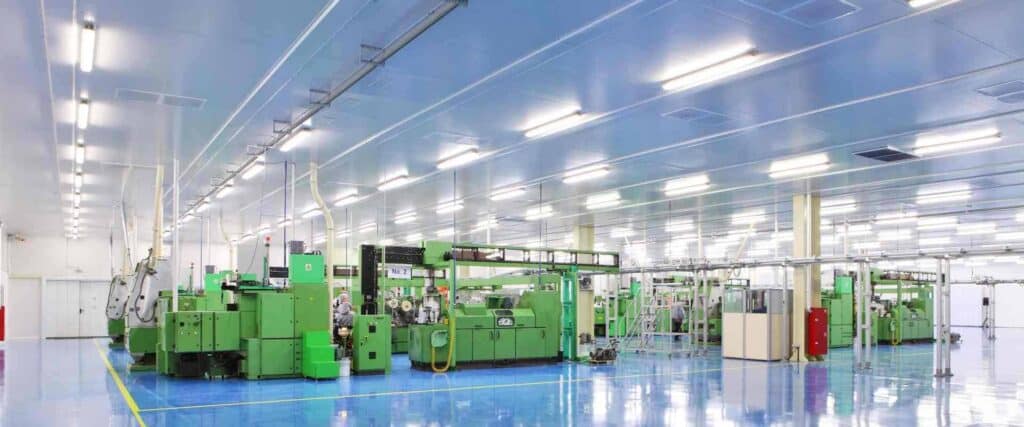An electrical mechanical assembler is a skilled technician who specializes in assembling, installing, and repairing complex electrical and mechanical systems. These systems can range from small electronic devices to large-scale industrial machinery. The role of an electrical mechanical assembler is critical in ensuring that these systems function correctly and efficiently.
To become an electrical mechanical assembler, one must have a solid understanding of electrical and mechanical principles, as well as experience working with various tools and equipment. The job requires a high level of attention to detail and the ability to read and interpret technical drawings and schematics. Additionally, the assembler must be able to troubleshoot and diagnose problems with the systems they are working on, and make repairs as needed.
Overall, the role of an electrical mechanical assembler is crucial in many industries, including manufacturing, construction, and telecommunications. As technology continues to advance, the demand for skilled electrical mechanical assemblers is expected to grow, making it a promising career path for those interested in working with complex systems.

Job Overview
As an Electrical Mechanical Assembler, you will be responsible for assembling components and sub-assemblies of electrical and mechanical systems. You will work with a team of engineers and technicians to ensure that products are assembled to meet the required specifications.
Responsibilities
- Read and interpret blueprints, schematics, and technical drawings
- Assemble electrical and mechanical components and sub-assemblies
- Conduct quality control inspections to ensure that products meet the required specifications
- Troubleshoot and repair defective components and sub-assemblies
- Maintain a clean and organized work area
- Follow all safety procedures and guidelines
Requirements
- High school diploma or equivalent
- Experience in electrical or mechanical assembly preferred
- Ability to read and interpret technical drawings and schematics
- Basic knowledge of electrical and mechanical systems
- Attention to detail and ability to work with precision
- Strong communication and teamwork skills
As an Electrical Mechanical Assembler, you will play a critical role in ensuring that products are assembled to meet the required specifications. With your attention to detail and ability to work with precision, you will help to ensure that products are of the highest quality possible.
Skills and Qualifications

Education and Training
To become an electrical mechanical assembler, a high school diploma or GED is typically required. However, some employers may prefer or require additional education or training, such as a certificate or degree in electronics, mechanics, or a related field.
There are also vocational schools and community colleges that offer programs specifically for electrical mechanical assembly. These programs may cover topics such as blueprint reading, soldering, wiring, and assembly techniques.
Experience
Experience in electrical mechanical assembly is highly valued by employers. This may include previous work in a manufacturing or production environment, as well as experience with hand and power tools, measurement equipment, and safety protocols.
Employers may also look for specific experience with the types of products or components that the company produces, such as medical devices, aerospace components, or consumer electronics.
Skills
In addition to education and experience, there are several key skills that are important for success as an electrical mechanical assembler. These include:
- Attention to detail: Assemblers must be able to follow detailed instructions and specifications, and ensure that all components are assembled correctly and to the required standards.
- Manual dexterity: Assemblers must be able to work with their hands, using tools and equipment to manipulate small components and parts.
- Problem-solving: Assemblers may encounter issues or challenges during the assembly process, and must be able to troubleshoot and find solutions to ensure that the product meets quality standards.
- Communication: Assemblers may work as part of a team, and must be able to communicate effectively with other team members, as well as with supervisors and managers.
Overall, becoming an electrical mechanical assembler requires a combination of education, training, and experience, as well as specific skills and qualities that are essential for success in this field.
Working Conditions
Physical Demands
As an electrical mechanical assembler, the job requires a certain level of physical fitness. The work can be physically demanding and may require standing for extended periods, bending, and lifting heavy objects. Assemblers may also be required to climb ladders or work in confined spaces. Therefore, it is essential to have good manual dexterity and hand-eye coordination to perform the job effectively.
Environment
The working environment for an electrical mechanical assembler can vary depending on the industry. Assemblers may work in a manufacturing plant, workshop, or construction site. The job may involve exposure to noise, fumes, and dust. Assemblers must also be aware of safety hazards, such as electrical shock, and take appropriate precautions. Therefore, it is essential to wear protective gear, including safety glasses, gloves, and earplugs.
In conclusion, working as an electrical mechanical assembler can be physically demanding and require working in various environments. However, with the right training and protective gear, assemblers can perform their job safely and effectively.
Salary and Benefits

Compensation
Electrical mechanical assemblers are typically paid hourly wages, which can vary depending on the employer, location, and level of experience. According to the Bureau of Labor Statistics, the median hourly wage for electrical mechanical assemblers was $19.54 as of May 2021. However, entry-level assemblers may earn less than this, while those with more experience or specialized skills may earn more.
Benefits
In addition to hourly wages, many employers offer benefits packages to their electrical mechanical assemblers. These benefits can include:
-
Health insurance: Many employers offer health insurance plans that cover medical, dental, and vision care. Assemblers may be required to pay a portion of the premium, but the employer typically covers the majority of the cost.
-
Retirement plans: Some employers offer retirement plans, such as 401(k) plans, that allow employees to save for their retirement while receiving tax benefits.
-
Paid time off: Assemblers may be eligible for paid time off, such as vacation days, sick days, and holidays.
-
Training and development: Employers may offer training and development opportunities to help assemblers improve their skills and advance their careers.
It’s important to note that not all employers offer the same benefits, and the specific benefits offered can vary widely. Assemblers should carefully review their employer’s benefits package to understand what is included and what they are responsible for paying.

